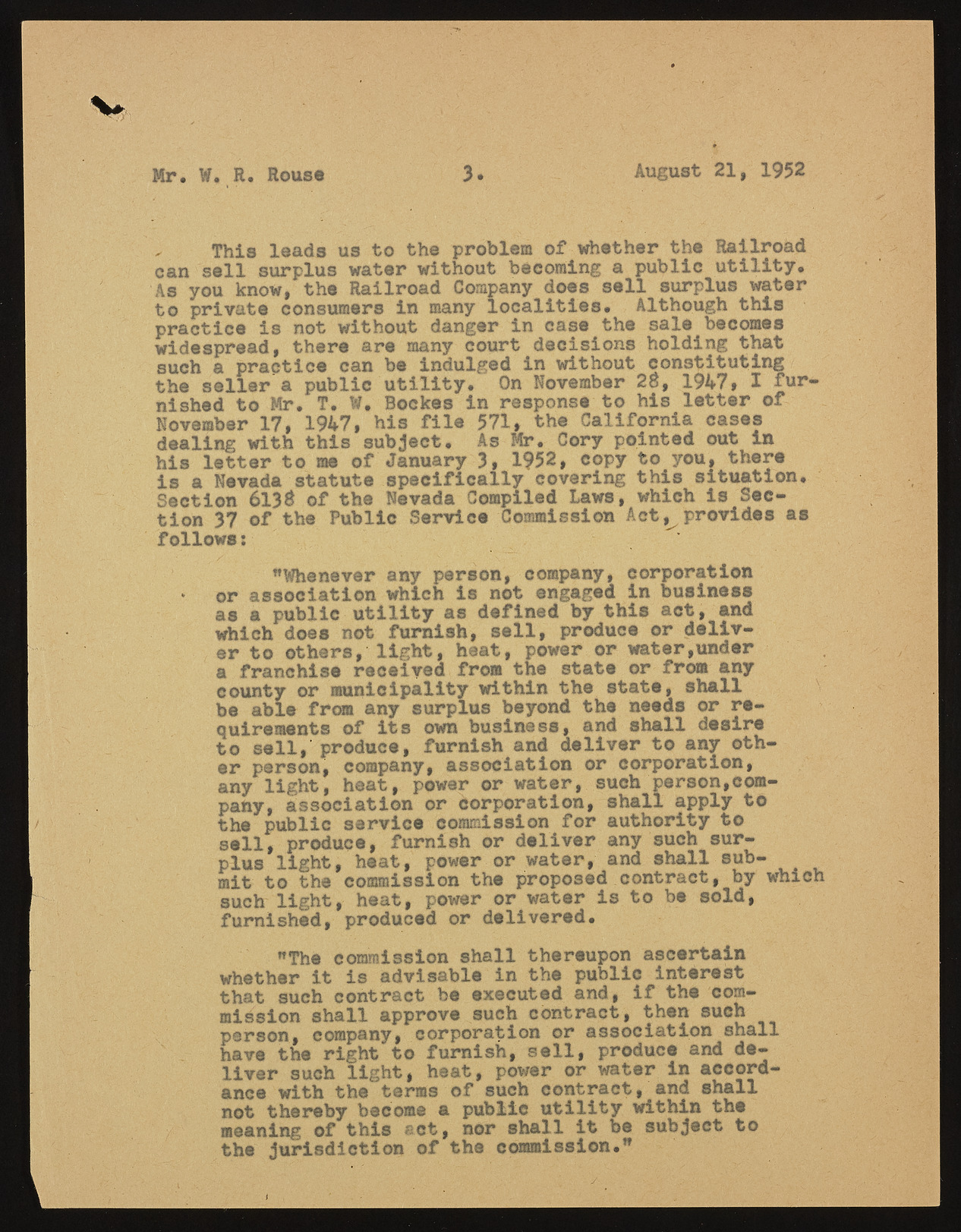Copyright & Fair-use Agreement
UNLV Special Collections provides copies of materials to facilitate private study, scholarship, or research. Material not in the public domain may be used according to fair use of copyrighted materials as defined by copyright law. Please cite us.
Please note that UNLV may not own the copyright to these materials and cannot provide permission to publish or distribute materials when UNLV is not the copyright holder. The user is solely responsible for determining the copyright status of materials and obtaining permission to use material from the copyright holder and for determining whether any permissions relating to any other rights are necessary for the intended use, and for obtaining all required permissions beyond that allowed by fair use.
Read more about our reproduction and use policy.
I agree.Information
Digital ID
Permalink
Details
More Info
Rights
Digital Provenance
Publisher
Transcription
Mr. W. R. Rouse 3 August 21, 1952 This leads us to the problem of whether the Railroad can sell surplus water without becoming a public utility. As you know, the Railroad Company does sell surplus water to private consumers in many localities. Although this practice is not without danger in case the sale becomes widespread, there are many court decisions holding that such a practice can be indulged in without constituting the seller a public utility. On November 28, 1947, I furnished to Mr. T. W. Bockes in response to his letter or November 17, 1947, his file 571, the California cases dealing with this subject. As Mr. Cory pointed out in his letter to me of January 3, 1952, copy to you, there is a Nevada statute specifically covering this situation. Section 6138 of the Nevada Compiled Laws, which is Section 37 of the Public Service Commission Act, provides as follows: ”Whenever any person, company, corporation • or association which is not engaged in business as a public utility as defined by this act, and which does not furnish, sell, produce or deliver to others, light, heat, power or water,under a franchise received from the state or from any county or municipality within the state, shall be able from any surplus beyond the needs or requirements of its own business, and shall desire to sell, produce, furnish and deliver to any other person, company, association or corporation, any light, heat, power or water, such person,company, association or corporation, shall apply to the public service commission for authority to sell, produce, furnish or deliver any such surplus light, heat, power or water, and shall submit to the commission the proposed contract, by which such light, heat, power or water is to be sold, furnished, produced or delivered. "The commission shall thereupon ascertain whether it is advisable in the public interest that such contract be executed and, if the commission shall approve such contract, then such person, company, corporation or association shall have the right to furnish, sell, produce and deliver such light, heat, power or water in accordance with the terms of such contract, and shall not thereby become a public utility within the meaning of this act, nor shall it be subject to the jurisdiction of the coramission." M

